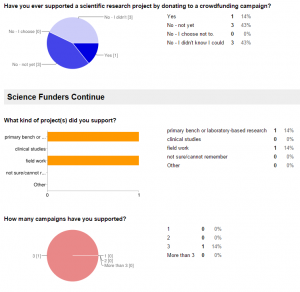Posted at 08 Mar 2013 15:15h
in
Science news
by Jakob
The Public Lab is, I think, a generally stellar example of how to go about citizen science: they identify genuine, pressing scientific needs that are underserved by existing institutions, develop effective and practical ways of addressing them, and then deftly articulate both to the public. Those steps are difficult enough to get right individually, let alone all at once—and repeatedly. Their ingenuity, insight and deep understanding of practical citizen science makes them not just role models, but inspirations. And that makes them an excellent subject for our first “Muses” post—a category for people and projects we find inspiring.
A whole lot of science fan culture tends to focus on heavy machinery: think the Large Hadron Collider or the Curiosity rover. These things are important for physicists and astronomers (and fans like me), but if you’re in a wetland, a factory, residential area, or salmon farm and you encounter an unknown substance, particle collision is not going to tell you what’s in your water. For that, you need spectrometry. And for that, it turns out, you do not need a PhD.
 We were curious about this question, and we decided to take the opportunity presented by the annual meeting of the American Association for Advancement of Science and the first conference of the newly formed Citizen Science Association, which both took place in San Jose last week and this weekend. We put together a short survey and tweeted/blogged/Facebooked it to the attendees and our followers: to you laypeople, this is what's known as a "convenience sample" (convenience sampling is the reason so much basic research is done on university students). We figured a few thousand people keen on advancing science generally and citizen science in particular would be a great way to find people who had supported science crowdfunding.
The response, unfortunately, was not what we'd hoped. We had seven responses, with one respondent giving reasons for supporting science via crowdfunding. A huge thank you to those who participated. While we sure won't be publishing any papers with these responses (and that was never the plan anyway!), we can talk about the data points we got—and for those who are keen to learn more, we've added some links at the end.
We were curious about this question, and we decided to take the opportunity presented by the annual meeting of the American Association for Advancement of Science and the first conference of the newly formed Citizen Science Association, which both took place in San Jose last week and this weekend. We put together a short survey and tweeted/blogged/Facebooked it to the attendees and our followers: to you laypeople, this is what's known as a "convenience sample" (convenience sampling is the reason so much basic research is done on university students). We figured a few thousand people keen on advancing science generally and citizen science in particular would be a great way to find people who had supported science crowdfunding.
The response, unfortunately, was not what we'd hoped. We had seven responses, with one respondent giving reasons for supporting science via crowdfunding. A huge thank you to those who participated. While we sure won't be publishing any papers with these responses (and that was never the plan anyway!), we can talk about the data points we got—and for those who are keen to learn more, we've added some links at the end.



